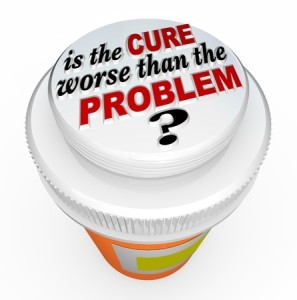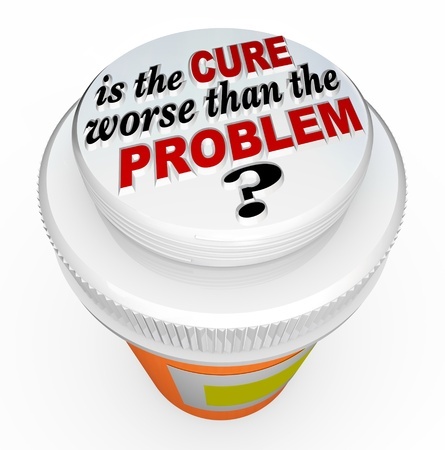
In mid-May of 2015, there was a public debate on whether the long-term use of psychiatric medications causes more harm than good. Before saying “Boring” and moving on to something else, realize that prescriptions for antidepressants are on the rise —increasing by 7.5% in Britain since 2013 and over 500% since 1992. Recent research has shown that more people are taking antidepressants for longer periods of time, “often because they become dependent upon them and cannot stop.” Yet there is no good research into the safe long-term use of these drugs.
It seems that the challenge for the debate grew out of several prominent British psychiatrists publically criticizing the launch of the Council for Evidence-Based Psychiatry, an organization aimed at starting a dialogue about the use of psychiatric drugs and treatments. The two sides of the debate jointly published a paper in the British Medical Journal (BMJ). The original BMJ press release, now removed from the site, inexplicably did not include a declaration of interests for one of the speakers against the motion, Alan H. Young. So what?
Young was initially in print as saying he had no interests to declare, while in fact he had several. This was important information to reveal, not only because it is a BMJ policy, but also because Young was planning to challenge the premise of whether long-term use of psychiatric medication causes more harm than good. In other words, his financial and professional ties to the pharmaceutical industry were initially not reported in a debate where he was defending the use of psychiatric medications. You can view the original press release here; the revised one here. Look at the bottom right column on page 2 for both.
This mistake was caught by one of the speakers for the motion, Peter Gøtzsche, who also reported a series of actions that appeared to be aimed at undercutting Gøtzsche’s credibility and the information he presented. You can read his description of these “bizarre events” related to the Maudsley debate here. You can review the debate here. Gøtzsche opened his time to speak during the debate by estimating that psychiatric drugs were the 3rd leading cause of death among people aged 65 and over.
I have estimated, based on randomised trials and cohort studies, that psychiatric drugs kill more than half a million people every year among those aged 65 and above in the USA and Europe. This makes psychiatric drugs the third leading cause of death, after heart disease and cancer. The drugs furthermore cripple tens of millions. There are no benefits that can justify so much harm.
Gøtzsche also described how clinical trials include patients already taking other psychiatric medications. These participants are then rapidly withdrawn for their medication. If they are randomly placed in a placebo group, they often experienced withdrawal symptoms. “This design exaggerates the benefits of treatment and increases the harms in the placebo group, and it has driven patients taking placebo to suicide in trials in schizophrenia.”
He called for the establishment of withdrawal clinics to help patients slowly and safely taper off of psychiatric drugs. He estimated that 98% of all psychotropic drugs could be stopped without causing harm. In the revised BMJ press release, it says “we could stop almost all psychotropic drugs without causing harm.” Gøtzsche said this replaced his original statement. This could be accomplished by dropping all antidepressants, ADHD medications, and dementia drugs. Only a small percentage of the antipsychotics and benzodiazepines currently used should be continued.
This would lead to healthier and more long-lived populations. Because psychotropic drugs are immensely harmful when used long term, they should almost exclusively be used in acute situations and always with a firm plan for tapering off, which can be difficult for many patients.
The Council for Evidence-Based Psychiatry (CEP) began on April 30th of 2014 with an event at the House of Lords and the release of a publication entitled: Unrecognized Facts about Modern Psychiatric Practice. This is linked on the CEP website. You can get a quick introduction to some of the CEP members and what they believe by viewing some short videos linked on their homepage. One of the innovative ways they have attempted to provide a bridge between the public, policy makers and legislators, and the research community that investigates the areas where psychiatry has caused harm, although the intention has been to help.
Unrecognized Facts is a nifty slide show that presents various facts about modern psychiatric practice, with links on each slide to further available information. Here are a few of examples of what you can find there.
Myth of the Chemical Imbalance
Psychiatric drugs have often been prescribed to patients on the basis that they cure a ‘chemical imbalance.’ However, no chemical imbalances have been proven to exist in relation to any mental health disorder. There is also no method available to test for the presence or absence of these chemical imbalances.
Worse Long-Term Outcomes
There has been little research on the long-term outcomes of people taking psychiatric drugs. The available studies suggest that all the major classes of psychiatric drugs add little additional long-term benefit, and for some patients they may lead to significantly worse long-term outcomes.
Long-Lasting Negative Effects
Psychiatric drugs can have long-lasting negative effects on the brain and central nervous system, particularly when taken long term, which can lead to physical, emotional and cognitive difficulties.
Negative Effects Are Often Misdiagnosed
Psychiatric drugs can have effects that include mental disturbance, including suicide, violence, and withdrawal syndromes. These can be misdiagnosed as new psychiatric presentations, for which additional drugs may be prescribed, sometimes leading to long-term use of multiple different psychiatric drugs in the same person.





